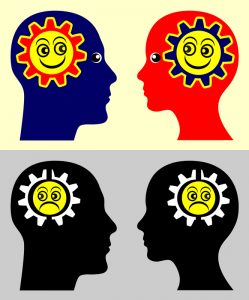 Are you aware of the extent that your emotions may affect others? Your verbal and face-to-face cues are surprisingly influential in determining the feelings of those who are listening and observing. This phenomenon is known as emotional contagion. It is recognized by behavioral psychologists as a kind of interpersonal influence.
Are you aware of the extent that your emotions may affect others? Your verbal and face-to-face cues are surprisingly influential in determining the feelings of those who are listening and observing. This phenomenon is known as emotional contagion. It is recognized by behavioral psychologists as a kind of interpersonal influence.
Studies reveal that emotions (either positive or negative) spread among group members like viruses. Emotional contagion often occurs at a subconscious level. In other words, people are unaware that their emotions may have been affected by another person’s mood with whom they are in close contact.
But it goes even deeper than a transfer of emotions. Research by Sigal Barsade has demonstrated that when emotional contagion takes place, the judgment and quality of group decisions are also impacted. Let’s review a study that shows how the emotions of a single person can significantly impact an entire group’s performance.
Business school students were divided into small groups for a simulated management exercise. Each had to role-play a department head advocating for an employee to get a merit-based increase. At the same time, all the students were part of a “salary committee” negotiating how best to allocate a limited amount of bonus money. In essence, they had to balance getting the most for their own candidate, while maximizing the overall benefit to the company. Each group was also seeded with a confederate (an actor) who was trained to convey one of four different mood conditions:
• cheerful enthusiasm
• serene warmth
• hostile irritability
• depressed sluggishness
The researchers were able to identify several effects of emotional contagion. Groups in which the confederate had “spread” positive emotion experienced an increase in positive mood. But the emotional contagion was not limited to a spread of feelings. These groups also displayed more cooperation, less interpersonal conflict, and believed that they had performed better on their task than groups in which negative emotions were spread by the confederate. In addition, groups in which people felt positive emotions made decisions that allocated the available bonus money more equitably.
When the participants were asked why they allocated the funds the way they did, and why they thought their group performed the way it did, they pointed to factors such as their ability to negotiate, or the attributes of the “candidates” they had been assigned. They were completely blind to the fact that their behavior and decisions (and that of their group) had been influenced by the displayed emotion of the confederate.


